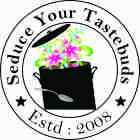The importance of a good diet during the period following the delivery of the baby has been stressed from time immemorial.The stress of delivery whether normal or through Cesarian section puts an equal amount of stress on the mother’s digestive system.Hence the dishes cooked for the new mother are carefully done to prevent or aggravate the digestive distress.
Also the food consumed by the mother can also affect the digestive system of the newborn.The nutrients pass on to the infant through the mothers milk and hence any deviation in the maternal diet can cause infantile colic, a painful condition that needs to be avoided at all costs.
Ayurveda shows that a vegetarian diet is much preferred. The modern science opts for a normal diet. But each family and culture have their own version of normal diet. For example, at home, we follow a simple vegetarian diet but in China a non vegetarian diet is given. I have seen my friend being served chicken soup ,eggs, fruits, leafy vegetables served in a meal.
What ever the type of food that is given to the new mom, it is advisable to eat small frequent meals. This way the digestive system will not be taxed and the digestion process is not distressed.
The food is cooked in water or steamed. This facilitates easy digestion and does not tax the digestive system. Oily foods are best avoided.Cold foods, refrigerated foods, leftovers, raw foods are to be avoided as they stress the digestive system.
According to Ayurveda, sweet foods , warming spices and digestive chewable herbs are recommended.
The food consumed during this time also has an effect on the maternal mental health.Certain foods lead to or increase postpartum depression while some foods can alleviate this problem.
While choosing vegetables, those that grow on runners and have high water content are preferred like Bottle gourd, chow chow, field beans etc.Certain vegetables like potato and other root vegetable, cabbage, cauliflower, coconut, broccoli are avoided as it stresses the digestive system and may produce colic in the infant.
Ghee is served along with the meal as it is considered to be nourishing and rejuvenating to the body.
Sour foods and foods that have turned sour like sour curd/foods prepared using sour batter is to be avoided.
In some parts of India, edible gum is mixed with dried fruits and nuts and made into small balls.These are given to the mother after 10 days of delivery along with a cup of milk in the morning. The edible gum is believed to normalize the reproductive organs in the body.
Moongdal is preferred over toor dal and other legumes. Split yellow moong dal is said to be easier to digest and does not produce colic in the infant. So in many recipes, the toor dal is replaced with split moong dal.
Warming spices like saffron, nutmeg, cinnamon, ajwain, cumin, turmeric,, fenugreek, fennel etc can be included in small quantities.
It is best to discuss with your Gynecologist regarding the right time to start exercising and dieting as she is the best person who knows well about your body condition. Also set realistic goals and seek the help of a dietitian so that while losing weight you still get your dose of Vitamins and minerals so that you don’t feel exhausted after the rounds of eating and exercising.
Check out the Blogging Marathon page for the other Blogging Marathoners doing BM#13
Earlier in this series of ‘Postpartum Diet‘ that is a part of Blogging Marathon #13–
PostPartum period – An Introduction
Nutritional need in Postpartum Period
Manathakkali Vatral Podi
Moongdal-Garlic Rasam
Healthy Living…


lovely post PJ, liked your observation abt lil crying while you are on pc, my little has continued this habbit even now at 2.5 yrs…guess they dont like us working besides eating
Awesome information for everyone:)
Preeti
Preeti's Kitchen Life
Very interesting..I totally agree that infants/kids require/demand attention when the mom is having her meal 🙂
Interesting post…
Cuisine Delights
My First Event-SPOTLIGHT:"COLOURFUL HOLI"
nice info
Aarthi
http://www.yummytummyaarthi.com/
if only i had the patience of yours… wonderfully written post PJ you ve no idea how many ppl you are going to help with these posts
Lovely writeup…yes I dunno why these infants cry/need attention everytime when mom having food 🙂 my boys troubled me a lot that after cuming here all alone I managed them(1 yr difference only)…I am sharing all your links to my sister n asked her to bookmark it…Take care!
Loved this post PJ, great info.Tc
Hope u're doing good, PJ. How's motherhood, enjoying every bit of it? Take care, dear!
Lovely info for "to be mothers".
So many excellent points covered PJ..wonderful!
Wonderful post…
Lovely post PJ… Very informative.. Thanks for sharing